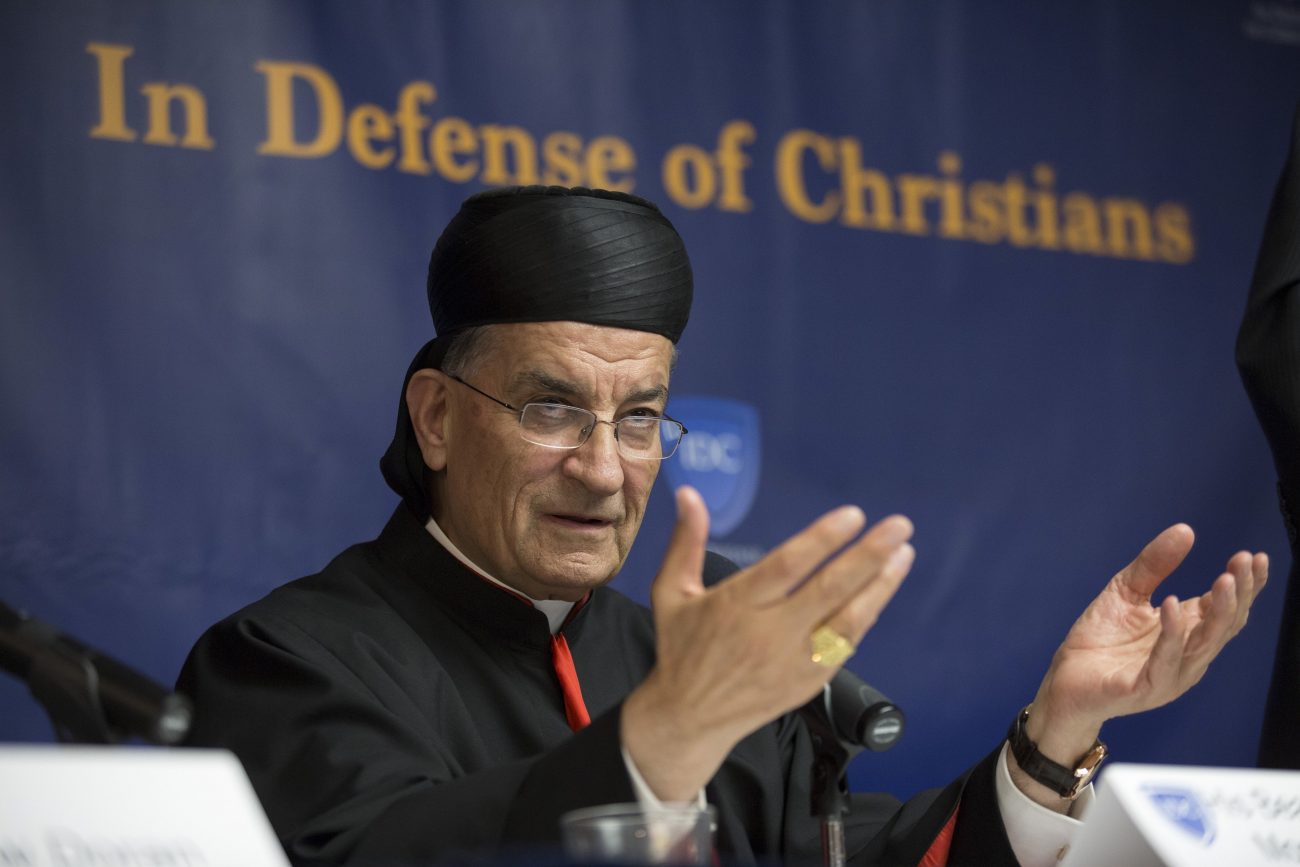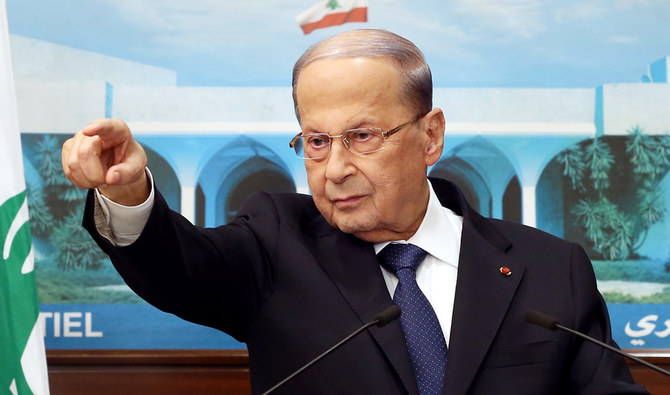BEIRUT/PARIS (Reuters) - France backed on Wednesday a proposal by a former Lebanese prime minister that could help break a deadlock blocking formation of Lebanon’s new cabinet amid the Middle East nation’s worst crisis since its 1975-90 civil war. Paris has been pressing politicians for the quick formation of a government that will draw up reforms to tackle corruption and help attract international aid to fix an economy drowning in debt and struggling after a massive explosion at Beirut port. Lebanese Deputy Parliament Speaker Elie Ferzli said he now saw “promising possibilities” for an end to the cabinet logjam. The process of forming a cabinet hit the buffers this month after Lebanon’s two main Shi’ite Muslim parties insisted they pick some cabinet posts, including the finance minister, which has been held by a Shi’ite for years.
Prime Minister-designate Mustapha Adib, a Sunni Muslim under Lebanon’s sectarian system of power-sharing, had sought to shake up ministerial positions with a new cabinet of specialists. Former prime minister Saad al-Hariri, a leading Sunni politician, offered a way out by proposing on Tuesday that an “independent” Shi’ite candidate be named as finance minister. “This declaration represents an opening and all parties should understand its importance so that a government of mission can now be established,” the French Foreign Ministry said.
His Beatitude Cardinal Bechara Rai likens fading Christian presence in Middle East to a sinking ship

By Doreen Abi Raad • Catholic News Service BEIRUT (CNS) — Lebanese Cardinal Bechara Rai warned that the Christian presence in the Middle East is shrinking and church leaders “are called to face the winds that blow in our homelands.” The assessment by the patriarch of Maronite Catholics during a meeting of the Middle East Council of Churches executive committee Sept. 18 underscored the dire reality facing Christians in the tumultuous region. “The ship threatened by strong winds and waves” that is sinking symbolizes “the witnessing church in the sea of our Middle Eastern countries troubled by the winds of conflicts and wars, political, economic, financial and livelihood crises, and the corona epidemic,” Cardinal Rai said. The cardinal also explained at the meeting he hosted at Bkerke, the Maronite patriarchate north of Beirut, that the threat “reached its climax” in Lebanon with the catastrophic double explosion in the port of Beirut Aug. 4. The disaster left nearly 200 people dead, injured another 6,000, and displaced more than 300,000 people.
He stressed that the MECC is called in such turbulent time to work with churches and their leaders, institutions and the faithful “to face the waves and winds that ravage their homelands … with stances of faith and hope.” “We ask you, Lord, through the intercession of our Mother Virgin Mary, the star of the sea in the storm, to lead our homelands, our churches and our people to the port of safety,” Cardinal Rai pleaded. The MECC in its final statement reiterated its appeal for an end to “the destructive wars and conflicts in the Middle East, to protect human dignity, and build peace on the basis of justice and rights.” Meeting participants expressed their “deep solidarity” with the Lebanese in the “catastrophic tragedy” they are suffering from the Beirut explosions. They called for continued “ecumenical ecclesiastical efforts with all local, regional and international partners to lift the material and psychological repercussions of this tragedy.” They also expressed their solidarity with all those affected by the coronavirus pandemic, especially people who have lost loved ones, offered appreciation to medical and humanitarian aid teams, and assured their continued prayers for an end to the pandemic.
by Al Jazeera — The Lebanese army said the blast occurred in a building in the southern village of Ein Qana, about …

by arabnews.com -- NAJIA HOUSSARI -- BEIRUT: Lebanon is “going to hell” if it fails to form a government, the president warned on Monday. A huge explosion on Aug. 4 at the Port of Beirut led to the resignation of Prime Minister Hassan Diab and his administration. Mustapha Adib, the country’s 48-year old ambassador to Germany, was named as his replacement and tasked with assembling a new government. However his mission has stalled, not least because of a dispute over who will lead the Ministry of Finance. Hezbollah and its ally the Amal Movement want Shiite ministers in the cabinet, including the finance minister. The Free Patriotic Movement has objected to their demand and proposed naming ministers from small sects to assume key portfolios.
Lebanon “is going to hell if the situation remains as it is,” President Michel Aoun said. “Neither bullying one another will benefit, nor channeling foreign powers will help. Only understanding each other based on the constitution and balance will take us to stability and recovery. The rigidity of positions will not lead us to any result except for more aggravation, while what Lebanon needs most in light of all its successive crises is some resolution and solidarity so that it can rise and confront its problems.” An initiative from France stipulates that the government comprise specialists who are separate from the parties in power, that portfolios should be rotated, that the government be small, its work team homogeneous and that it carry out a specific reform mission. This mission, based on its implementation, would lead to crucial international aid that would bail Lebanon out of its economic and financial misery. President Emmanuel Macron gave parties a deadline to form a government. It was missed, however, and has been extended until Tuesday. Aoun proposed cancelling the sectarian distribution of key ministries, not allocating them to specific sects but making them available to all sects, and making the ability to accomplish and not sectarian affiliation as the criterion for choosing ministers.
Khazen History


Historical Feature:
Churches and Monasteries of the Khazen family

St. Anthony of Padua Church in Ballouneh
Mar Abda Church in Bakaatit Kanaan
Saint Michael Church in Bkaatouta
Saint Therese Church in Qolayaat
Saint Simeon Stylites (مار سمعان العامودي) Church In Ajaltoun
Virgin Mary Church (سيدة المعونات) in Sheilé
Assumption of Mary Church in Ballouneh
1 - The sword of the Maronite Prince
2 - LES KHAZEN CONSULS DE FRANCE
3 - LES MARONITES & LES KHAZEN
4 - LES MAAN & LES KHAZEN
5 - ORIGINE DE LA FAMILLE
Population Movements to Keserwan - The Khazens and The Maans
ما جاء عن الثورة في المقاطعة الكسروانية
ثورة أهالي كسروان على المشايخ الخوازنة وأسبابها
Origins of the "Prince of Maronite" Title
Growing diversity: the Khazin sheiks and the clergy in the first decades of the 18th century
Historical Members:
Barbar Beik El Khazen [English]
Patriach Toubia Kaiss El Khazen(Biography & Life Part1 Part2) (Arabic)
Patriach Youssef Dargham El Khazen (Cont'd)
Cheikh Bishara Jafal El Khazen
Patriarch Youssef Raji El Khazen
The Martyrs Cheikh Philippe & Cheikh Farid El Khazen
Cheikh Nawfal El Khazen (Consul De France)
Cheikh Hossun El Khazen (Consul De France)
Cheikh Abou-Nawfal El Khazen (Consul De France)
Cheikh Francis Abee Nader & his son Yousef
Cheikh Abou-Kanso El Khazen (Consul De France)
Cheikh Abou Nader El Khazen
Cheikh Chafic El Khazen
Cheikh Keserwan El Khazen
Cheikh Serhal El Khazen [English]
Cheikh Rafiq El Khazen [English]
Cheikh Hanna El Khazen
Cheikha Arzi El Khazen
Marie El Khazen